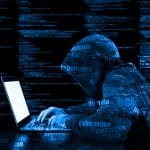
Pakistan’s connection to the World Wide Web became available in the early 1990s and usage has increased considerably since then. As of April this year, it was reported that broadband Internet users make up 33.14 percent of the population, which is estimated to be 70 million citizens.
Because of its substantial user base and the risks associated with being part of the online community, the South Asian country has implemented laws that promote cybersecurity. However, there are still loopholes and inconsistencies, which should be addressed by the government before hackers with malicious intent abuse them.
Here are a few key facts you should know about cybersecurity in Pakistan:
1. You Can Report Cyber Crimes to a Dedicated Department
The Federal Investigation Agency (FIA), which is controlled by the Interior Secretary of Pakistan, created the National Response Centre for Cyber Crimes (NR3C) to monitor cyber threats as well as implement regulations on online activities of the people. The department directly receives complaints related to cybercrime and also assists other agencies with their cases.
These are the forensic services that the NR3C provide:
The department also confirms that each person in the team develops their skills by going through technical training programs to keep them abreast of the latest software and technologies. They have to keep up with cybercriminals who often have more sophisticated apps and programs to aid them in their misdeeds.
2. Most Pakistani Do Banking Online
Online banking has become quite popular globally because of its convenience. The same case is true for Pakistani Internet users. However, it comes with the risk of financial data falling into the wrong hands.
Cybercrime has become a threat to the banking industry in Pakistan. If you’re one of the many people who opt to send money and check their bank accounts online, it’s imperative that you take additional measures to ensure your privacy and safety.
Pakistan establishes a cybersecurity wing to combat cyber terrorism threats
An excellent way to protect your web-browsing activities is by using a reliable VPN or Virtual Private Network. This service provides you with a secure connection to another network over the Internet. There are lots of brands to choose from, so do your research and read online resources such as VPNpro to learn more about how you can take advantage of this technology for online banking.
3. Malware Continues to Pose a Problem for Users
Trojan Horse and other types of malware continue to pester Pakistani Internet users. These cyber threats infect your computers or mobile devices, even iPhones, with a digital virus that’s programmed to steal or copy personal data to the hacker’s database. This type of software is often contracted through thoughtless downloading of files online as well as phishing tactics, which involve tricking users into giving confidential information by pretending to be a trustworthy entity.
Other common cyber threats in the country include:
Final words Technology has made it convenient to share information to people from other parts of the world even if you’re from Pakistan. However, it also increased the risk of data breaches since hackers can easily access files illegally with their sophisticated tools. Always be vigilant and take precautionary measures to ensure your privacy and data safety.
Digital marketing enthusiast and industry professional in Digital technologies, Technology News, Mobile phones, software, gadgets with vast experience in the tech industry, I have a keen interest in technology, News breaking.